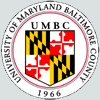| |||||||||||||||||||
Tips:  Range on the Protein: Protein ID Protein Position Domain Position: 
|
|---|
Weblogos are Copyright (c) 2002 Regents of the University of California
| DMDM_info@umbc.edu | 1000 Hilltop Circle, Baltimore, MD 21250 | Department of Biological Sciences | Phone: 410-455-2258 |




 C-terminal, alpha helical domain of Class Omega Glutathione S-transferases. Glutathione S-transferase (GST) C-terminal domain family, Class Omega subfamily; GSTs are cytosolic dimeric proteins involved in cellular detoxification by catalyzing the conjugation of glutathione (GSH) with a wide range of endogenous and xenobiotic alkylating agents, including carcinogens, therapeutic drugs, environmental toxins and products of oxidative stress. The GST fold contains an N-terminal thioredoxin-fold domain and a C-terminal alpha helical domain, with an active site located in a cleft between the two domains. GSH binds to the N-terminal domain while the hydrophobic substrate occupies a pocket in the C-terminal domain. Class Omega GSTs show little or no GSH-conjugating activity towards standard GST substrates. Instead, they catalyze the GSH dependent reduction of protein disulfides, dehydroascorbate and monomethylarsonate, activities which are more characteristic of glutaredoxins. They contain a conserved cysteine equivalent to the first cysteine in the CXXC motif of glutaredoxins, which is a redox active residue capable of reducing GSH mixed disulfides in a monothiol mechanism. Polymorphisms of the class Omega GST genes may be associated with the development of some types of cancer and the age-at-onset of both Alzheimer's and Parkinson's diseases.
C-terminal, alpha helical domain of Class Omega Glutathione S-transferases. Glutathione S-transferase (GST) C-terminal domain family, Class Omega subfamily; GSTs are cytosolic dimeric proteins involved in cellular detoxification by catalyzing the conjugation of glutathione (GSH) with a wide range of endogenous and xenobiotic alkylating agents, including carcinogens, therapeutic drugs, environmental toxins and products of oxidative stress. The GST fold contains an N-terminal thioredoxin-fold domain and a C-terminal alpha helical domain, with an active site located in a cleft between the two domains. GSH binds to the N-terminal domain while the hydrophobic substrate occupies a pocket in the C-terminal domain. Class Omega GSTs show little or no GSH-conjugating activity towards standard GST substrates. Instead, they catalyze the GSH dependent reduction of protein disulfides, dehydroascorbate and monomethylarsonate, activities which are more characteristic of glutaredoxins. They contain a conserved cysteine equivalent to the first cysteine in the CXXC motif of glutaredoxins, which is a redox active residue capable of reducing GSH mixed disulfides in a monothiol mechanism. Polymorphisms of the class Omega GST genes may be associated with the development of some types of cancer and the age-at-onset of both Alzheimer's and Parkinson's diseases. No pairwise interactions are available for this conserved domain.
No pairwise interactions are available for this conserved domain.








